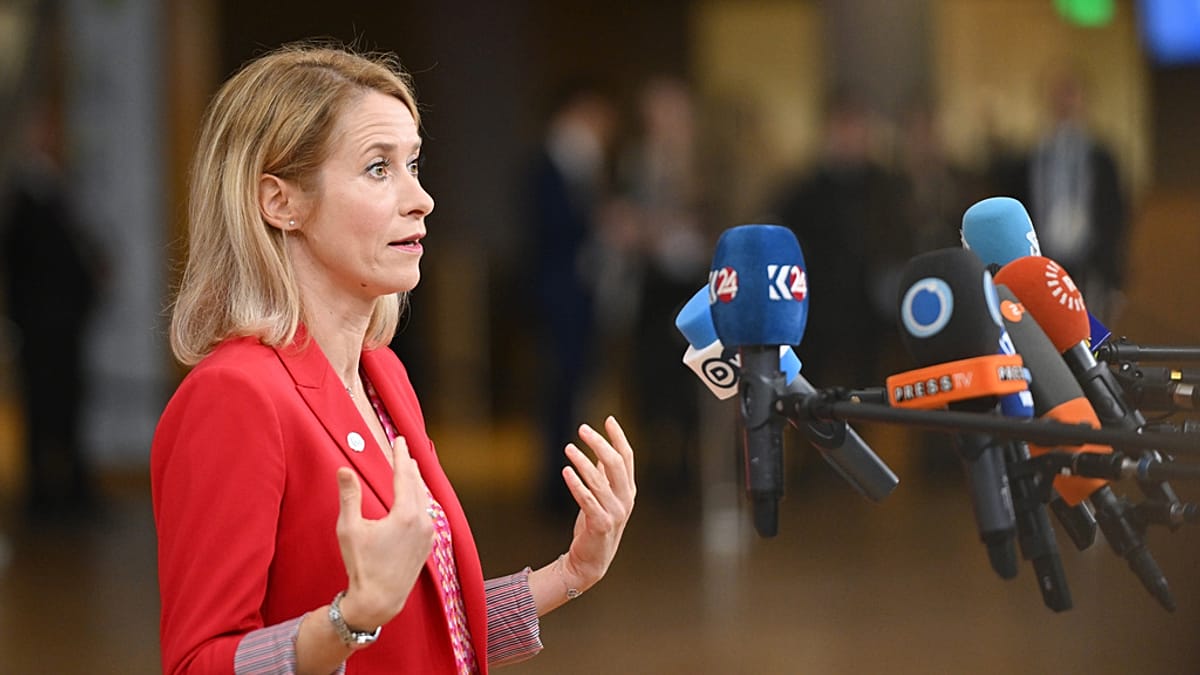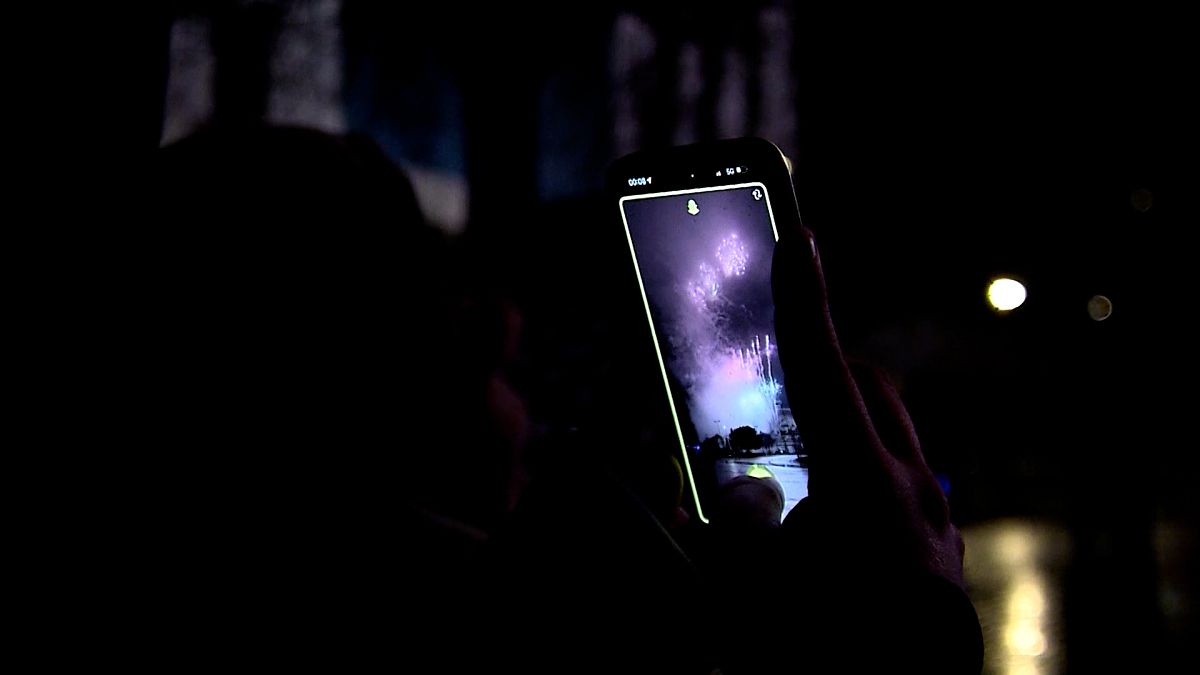Time to say goodbye: Will the EU ever abandon Daylight Saving Time?

Like clockwork, every year in late March the same spiel repeats itself. People confusedly ask each other whether the clocks go forward or back by one hour. Sleep is lost, appointments are missed: And like every year, millions of Europeans from Denmark to Croatia ask themselves: Do we really need daylight saving time (DST) – and what is it anyway?
The European Commission proposed abolishing the custom of seasonal clock changes in 2018 after nearly four million people in the bloc’s then 28 member states – before the United Kingdom formally exited – gave their support in an open consultation. The Parliament backed the reform the following year, but it has since fallen into limbo after hitting opposition from some EU states.
Poland, which holds the bloc’s rotating presidency until July, said it is time to put the issue back on the countries’ agenda. The Polish presidency will hold technical talks with the member states at the end of April to check whether there is a chance of reaching an agreement on the abolition of the clock changes, EU sources said.
The practice of moving the clocks forward in spring to add an hour of light to the evening was carried out in some European countries on and off since World War I. It fell by the wayside when many European countries abandoned the measure as it became a reminder of the war itself. During the 1970s oil crisis it was brought back to save energy, and stayed.
European countries then introduced DST in the late 1970s or early 1980s. The EU first legislated on summer-time arrangements in 1980, with a directive that coordinated existing national practices. The aim was to help ensure the smooth functioning of the single market, the European Council explains on its website.
The current directive entered into force in 2001. Under its provisions, all member states switch to summer time on the last Sunday in March and back to their standard time (‘winter time’) on the last Sunday in October.
Does daylight saving save anything?
The general idea was to save energy costs by “winning” one hour of daylight in the evenings.
However, the actual energy-saving effect is controversial. The German Environment Agency summarised: “How much energy is actually saved by switching to daylight saving time cannot be precisely determined, because: The change leads to lower consumption in some areas and higher consumption in others.”
That means that on the one hand, daylight is utilised more effectively during daylight saving time, resulting in electricity savings during the evening hours. On the other hand though, more heating energy is consumed due to earlier waking times during the cooler morning hours in spring and autumn.
Most studies point to a very low energy savings potential.
Losing sleep over DST
There is also the mounting evidence of detrimental health effects of the time change – both in northern and southern European countries:
“There’s a huge amount of evidence suggesting that changing the clock biannually is bad for human health, bad for animals, bad for road traffic, and has very little beneficial attributes. And it’s also a huge inconvenience,” said Irish EU lawmaker Seán Kelly, one of the most vocal proponents of eradicating clock changes.
“So I think the time has come to say bye-bye.” MEP Seán Kelly
In 2017, a Danish study showed that 11 percent more people suffer from depression in the week after we switch from summer time to winter time compared to other weeks of the year. “It has been directly demonstrated that those who are prone to depression can experience the sudden onset of darkness as a trigger for the disease,” said Jørgen Bak, chairman of the Danish Association Against Daylight Saving Time.
In Spain, the best course of action would be to stick with the time zone closest to our meridian, which is winter time, said Gonzalo Pin, coordinator of the Sleep and Chronobiology Group of the Spanish Association of Pediatrics (AEP). “Sudden time changes cause our neurohormonal system – cortisol, melatonin, serotonin, and cholesterol – which has its own biological cycle, to become significantly out of sync,” Pin emphasised.
But the scientific opinions are also not unanimous: Bulgarian neurologist Dr Diana Dechovska said in an interview for the Bulgarian News Agency BTA in 2022 that the human body is quite adaptable, and changing the time by one hour is generally not that stressful.
An average person needs 5 to 10 days to get used to the time change, she said. Dechovska quoted data according to which about only 5 percent of people suffer from more negative reactions to the time change. They may experience sleep disturbance that could lead to nervousness, irritability, reduced concentration, low mood. Older people and those with chronic illnesses are more susceptible to these adverse events, as their bodies are less adaptable.
Change: who wants it, and in which direction?
Although the European Commission proposed ending the time change about six and a half years ago, no agreement has yet been reached among the EU member states on this issue.
The proposal followed an online survey conducted in the summer of 2018, in which 4.6 million people participated. Of that number, 84 percent said they were in favor of putting an end to the bi-annual clock change.
However, only in Germany and Austria a significant number of people responded. Of the 4.6 million who responded, over 3.1 million were from Germany, over 260,000 from Austria, while the response in the other member states was very low. Germans overwhelmingly voted in favour of making summer time permanent.
The current Polish EU Presidency is informally examining whether it is possible to advance the proposal to abolish the time change but is aware that the proposal has so far received only limited support from the EU member states.
A spokeswoman for the EU Commission said: “We believe that a coordinated solution is still achievable, and we encourage renewed discussions.”
Poland’s Minister of Development and Technology Krzysztof Paszyk said the Commission’s position was the result of his conversation with the EU Commissioner responsible for transport, Apostolos Tzitzikostas. “We both agree that time changes in Europe should be stopped. The Polish presidency has full support for the actions in this matter,” the minister assured.
After his re-election, US President Donald Trump said he wanted to get rid of DST as “inconvenient” and “very costly” – although he has since tempered his tone, calling it a “50/50 issue”.
Trump’s ally and tech billionaire Elon Musk jumped into the fray by asking his followers last month if they preferred an hour earlier or later – were the change to go ahead. A majority preferred a later sunrise and sunset all year.
However, it seems that similar enthusiasm is lacking among the EU countries. Denmark and Cyprus, which will take over the presidency of the EU Council after Poland, are also said to be uninterested in taking the matter forward.
In Denmark, Jørgen Bak hopes that Trump can get Europe to agree to abolish daylight saving time.
“I’m convinced that if daylight saving time is abolished in the US, it will have a big impact on whether people will really consider doing the same here in Europe.” Jørgen Bak, Danish Association Against Daylight Saving Time
However, for the abolition to take place, the EU states would first need to agree on whether they want to adopt permanent daylight saving time or standard time.
In Bulgaria, there were calls from political parties to abolish summer time, and citizens seem to agree. Data from a 2018 EU poll showed that 80 percent of Bulgarian respondents said their overall experience with the clock change was either very negative or negative, while less than 20 percent enjoyed a positive or a very positive experience.
Italy, on the other hand, recently saw a petition with 350,000 signatories calling for making daylight saving time permanent. According to the Italian Society of Environmental Medicine (SIMA), one of the organisers, the adoption of daylight saving time has allowed for savings of 11.7 billion kWh over 10 years, which reduced energy bills for Italians by 2.2 billion Euro. Additionally, there has been a significant reduction in climate-altering emissions.
Albanians are in favour of the time change, partly due to the fact that the small Balkan country enjoys around 300 sunny days a year, which primarily results in saving electrical energy.
Others are more agnostic: In Romania, which regulated its switch to summer time in 1997, there is no debate or official initiatives calling for change.
It’s astronomy, stupid
While often the problem may be the lack of political unity within the EU, in this case, the issue also has a geographical aspect, which cannot be overlooked.
There are three time zones in the European Union, the largest of which is Central Europe, from Poland in the east to Spain in the west.
If all countries in that time zone were to adopt, for example, summer time permanently, in Belgium, the Netherlands, and Denmark, the sun would rise only in the middle of the morning in winter, and in northwest Spain around 10 a.m.
If they were to adopt winter time as a permanent time, the sun would rise in eastern Poland as early as 3 in the morning in summer, and in Berlin at 3:44 a.m.
On the other hand, if countries in the west and north of the continent were to enter the Western European time zone, which would be natural, new complications would arise because, for example, France and Germany would fall into two different time zones.
For the moment, it seems that seasonal clock changes, despite all their drawbacks, are still the best compromise.
This article is published twice a week. The content is based on news by agencies participating in the enr.
















































